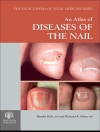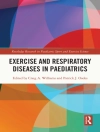In Breast Cancer Chemosensitivity, a group of world leading experts review critical aspects of resistance to systemic therapy in breast cancer patients. Beginning with a clinical overview of the problem Breast Cancer Chemosensitivity moves on to focus on the latest findings of molecular mechanisms of drug resistance. These include in-depth discussions on multidrug resistance by P-glycoprotein and the multidrug resistance protein family, resistance to therapeutic agent-induced apoptosis, cell cycle deregulation, deregulation of DNA repair, loss of tumor suppressor genes, integrin-mediated adhesion, insulin-like growth factors, epidermal growth factor, and Erb B2 in modulating breast cancer response to systemic therapy, especially, certain chemotherapeutic agents. Breast Cancer Chemosensitivity provides an example of using novel approaches for chemosensitization of breast cancer cells that gives readers an idea about the future direction in breast cancer treatment.
Зміст
Overview of Resistance to Systemic Therapy in Patients with Breast Cancer.- Roles of Multidrug Resistance Genes in Breast Cancer Chemoresistance.- Therapy-Induced Apoptosis in Primary Tumors.- Cell Cycle Deregulation in Breast Cancer: Insurmountable Chemoresistance or Achilles’ Heel?.- p53, BRCA1 and Breast Cancer Chemoresistance.- Integrin-Mediated Adhesion: Tipping the Balance between Chemosensitivity and Chemoresistance.- Insulin-Like Growth Factors and Breast Cancer Therapy.- EGF Receptor in Breast Cancer Chemoresistance.- Molecular Mechanisms of Erb B2-Mediated Breast Cancer Chemoresistance.- Estrogen Receptors in Resistance to Hormone Therapy.- Novel Approaches for Chemosensitization of Breast Cancer Cells: The E1A Story.












